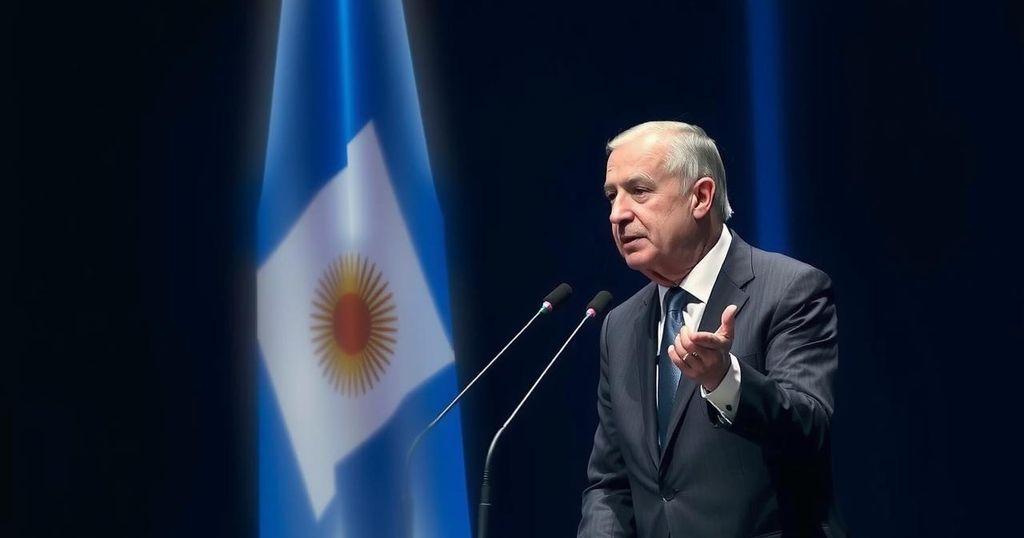Argentina’s Milei Dismisses Foreign Minister in Policy Shift Regarding Cuba

Argentina’s President Javier Milei has dismissed Foreign Minister Diana Mondino following the country’s vote supporting the lifting of the US economic embargo on Cuba. The vote diverges from previous alignments with the US and Israel, reflecting a significant realignment in Argentina’s foreign policy. Mondino has been replaced by Gerardo Werthein, and the administration has reiterated its opposition to the Cuban government, emphasizing a new focus on human rights and values associated with Western democracies.
In a significant political shift, Argentina’s President Javier Milei has dismissed Foreign Minister Diana Mondino following the country’s recent vote at the United Nations in support of a resolution to lift the US economic embargo on Cuba. This decision marks a departure from the alignment Argentina held with the US and Israel under previous administrations. The vote saw Argentina joining 187 other nations in favor of the resolution, while only the United States and Israel voiced opposition. Mondino has been succeeded by Gerardo Werthein, the former ambassador to Washington. Following the change, President Milei reiterated Argentina’s stance against the Cuban government, asserting that the country opposes the so-called “Cuban dictatorship.” This shift reflects a broader realignment in Argentina’s foreign policy, moving away from the close ties established during the previous leftist Peronist government, which advocated for an end to the embargo that has been in place since the 1960s. Historically, Cuba has supported Argentina’s long-standing claims of sovereignty over the Falkland Islands, which are a contested British overseas territory. Milei’s office conveyed that the current political climate necessitates a foreign policy that emphasizes values such as freedom, sovereignty, and human rights associated with Western democracies. The dismissal of Mondino comes amidst rising tensions between the presidency and the foreign ministry over various issues. Although she played a crucial role in maintaining Argentina’s image abroad, often mediating following controversial remarks made by Milei, the government is now reshaping its diplomatic approach. In a recent statement, Milei’s administration asserted, “Our country is categorically opposed to the Cuban dictatorship and will remain firm in promoting a foreign policy that condemns all regimes that perpetrate human rights violations.”
The US trade embargo against Cuba was first enforced in 1962, motivated by the Cuban Revolution that brought Fidel Castro to power. The embargo aimed to compel the country to reject socialism in favor of capitalism and democracy; however, this objective has not been realized and remains a contentious issue, particularly among nations in the region. Under previous administrations, Argentina maintained a supportive stance toward Cuba, which included backing efforts to lift the embargo. This support is largely attributed to historical relationships and mutual political interests, including Cuba’s backing of Argentina’s claims over the Falkland Islands. The recent change in Argentina’s foreign policy direction under President Milei marks a notable shift in diplomatic relations.
In summary, President Javier Milei’s dismissal of Foreign Minister Diana Mondino reflects a significant realignment of Argentina’s foreign policy, particularly regarding Cuba. The recent UN vote endorsing the lifting of the US embargo highlights this shift, positioning Argentina in opposition to long-held government positions under previous administrations. The new government’s emphasis on condemning human rights violations further outlines its diplomatic priorities moving forward. As Argentina navigates this period of transformation, the departure from its previous foreign policy stance indicates a determined approach to redefining its role in international relations.
Original Source: www.bbc.co.uk







